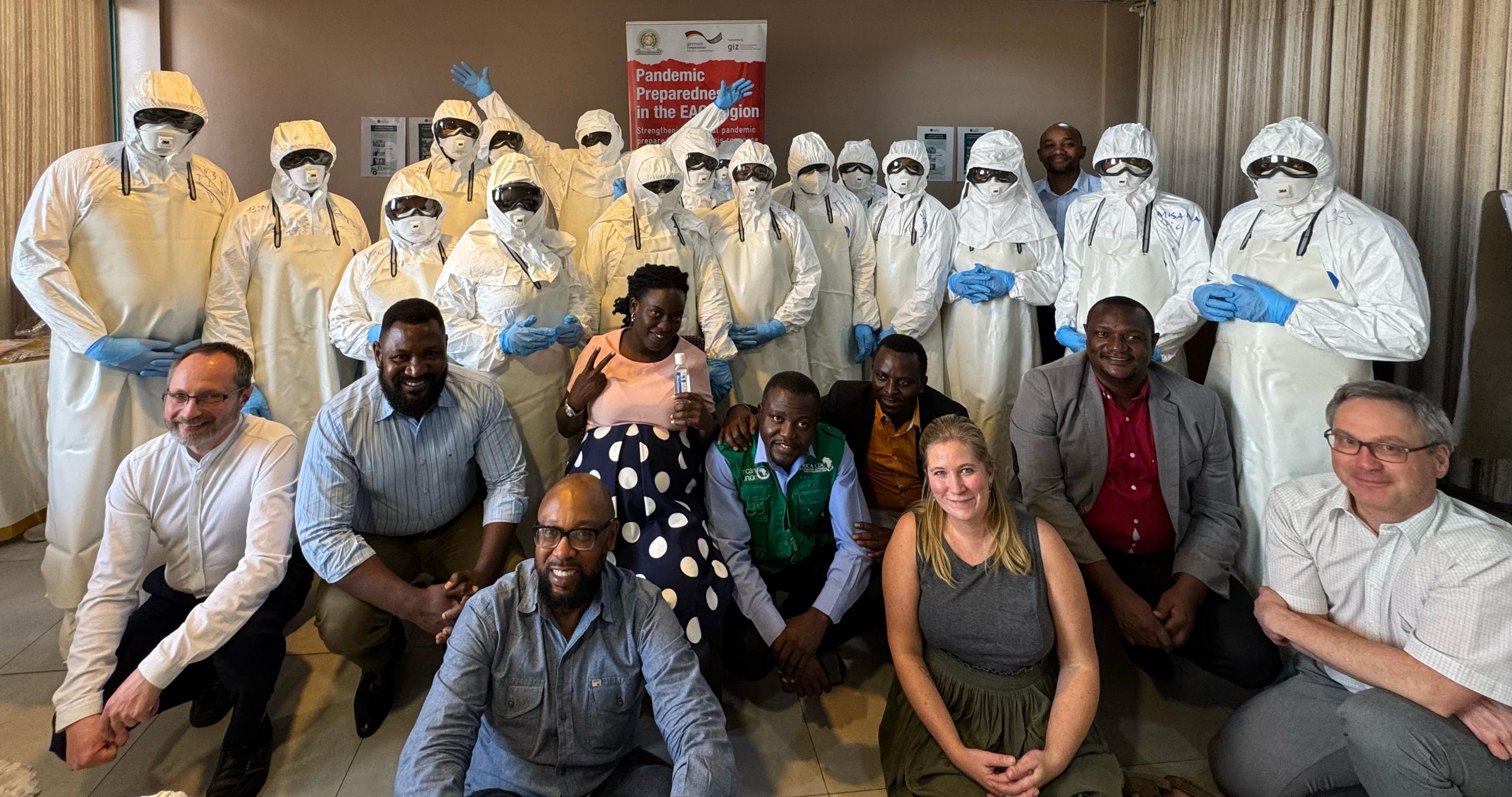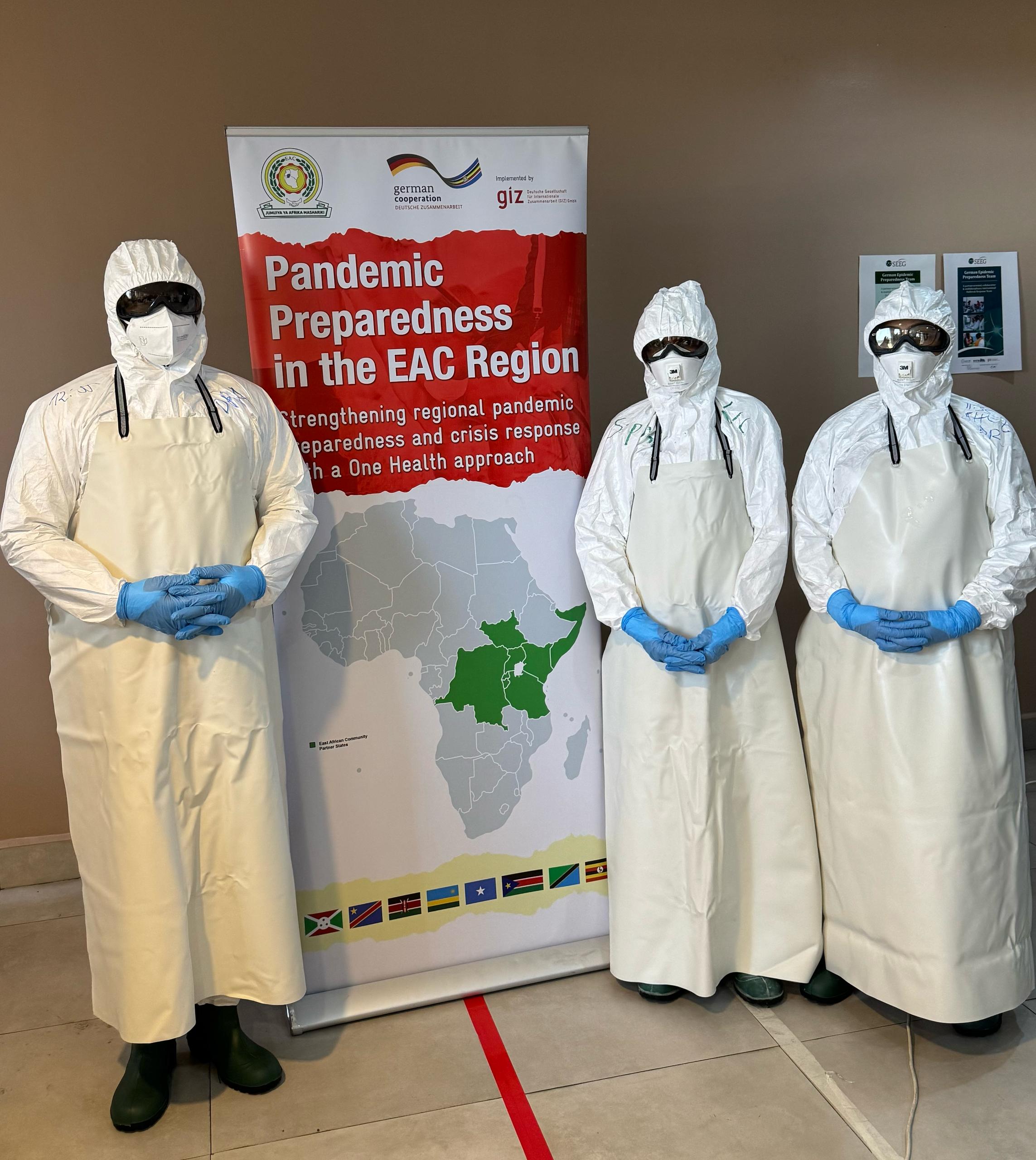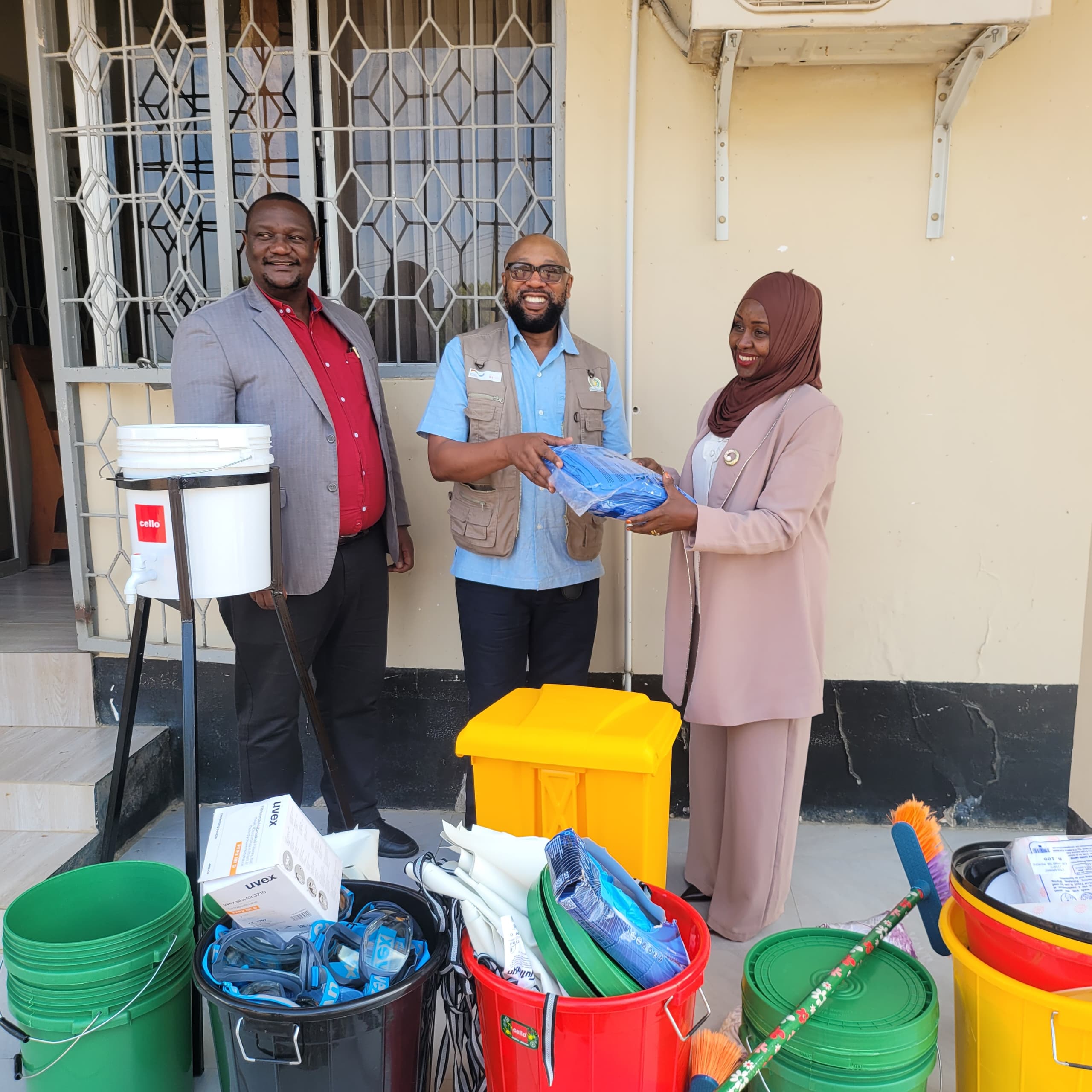Healthcare professionals from across the EAC Partner States recently convened in Mwanza, Tanzania, for an intensive Infection Prevention and Control (IPC) training. Organised by the EAC Secretariat through the GIZ-supported Pandemic Preparedness Project, the training aimed to enhance regional capacity to respond to outbreaks in Marburg, Ebola, and Mpox.
The training was initiated following a request from Faith-Based Organizations (FBOs) for emergency support in response to the Marburg Virus Disease outbreak. Over 60 healthcare professionals from FBO-based health facilities, along with health experts from the Ministries of Health in Tanzania, Burundi, Rwanda, Uganda, Kenya, and South Sudan, participated in the programme, which was conducted in collaboration with the German Epidemic Preparedness Team (SEEG) and Africa CDC.
Speaking at the opening ceremony, the Mwanza Regional Medical Officer Dr Jessica Lebbah stressed the urgency of regional preparedness. “Recent outbreaks in the Democratic Republic of Congo (DRC), Uganda, Rwanda, and Tanzania serve as stark reminders of our vulnerability. These events highlight the need for coordinated action.”
The EAC Principal Health Officer, Dr. Eric Nzeyimana, emphasised the crucial role of faith-based healthcare providers, particularly in rural areas. “They are often the first line of defence in detecting and responding to outbreaks. Their involvement in pandemic preparedness cannot be overlooked.”
Norman Nausch, Head of SEEG, underscored the importance of IPC in protecting healthcare workers. “Proper IPC measures are essential to slowing disease transmission and safeguarding frontline personnel.”
The eight-day training was divided into two sessions. The first, lasting five days, was a Training of Trainers (ToT) programme for 22 senior healthcare providers. The second, spanning three days, covered 40 healthcare workers. The course combined theoretical instructions with practical exercises and interactive discussions.
Participants were trained on IPC frameworks, standard operating procedures, and key practices, including hand hygiene, proper use of personal protective equipment (PPE), environmental cleaning, waste management, clinical screening for Mpox, Marburg, and Ebola, and risk communication strategies. Trainers from Africa CDC, the EAC Rapid Deployable Expert (RDE) pool, SEEG, and GIZ facilitated the sessions.
Dr Joseph Ekong, a participant in the training from Uganda, noted that “This course has significantly enhanced my understanding of IPC, equipping me with essential knowledge and skills. It has bridged knowledge gaps and strengthened my ability to train others.” To ensure long-term impact, participants recommended follow-up refresher courses, continuous mentorship, and stronger partnerships for sustainable IPC funding.
The Mwanza IPC training builds on previous efforts to enhance outbreak response in the region. In September 2024, SEEG, in collaboration with the EAC RDE pool and local partners, conducted similar training in DRC’s Bukavu, South Kivu, for 66 participants, focusing on PPE use, biomedical waste management, and outbreak coordination. This session was followed by Risk Communication and Community Engagement (RCCE) training in Bukavu and Goma (North Kivu) in November 2024, equipping nearly 100 healthcare workers and community leaders with strategies to manage Mpox outbreaks. These initiatives reflect ongoing collaboration between the EAC, Africa CDC, GIZ, and SEEG to enhance regional preparedness.
The EAC Rapidly Deployable Expert (RDE) pool, established through GIZ support, is a specialised network of trained professionals from across EAC Partner States, designed to provide rapid support during public health emergencies. During the Mwanza and DRC training sessions, RDE pool members served as trainers, sharing their expertise in IPC and RCCE. Their involvement strengthened the quality of the training and reinforced regional collaboration. By leveraging the skills of RDE professionals, EAC continues to build a robust mechanism for responding to health crises and mitigating the impact of infectious disease outbreaks.
As part of the Mwanza Training Program, the EAC, in partnership with GIZ, donated essential IPC supplies to the Mwanza Regional Medical Officer. The donation included handwashing stations, buckets, disposable overalls, sprayers, goggles, masks, gloves, and aprons to improve infection control in healthcare settings.
With infectious disease threats on the rise in East Africa, sustained investment in IPC training and cross-border cooperation remains crucial. By strengthening regional preparedness and response mechanisms, East Africa is better positioned to tackle future outbreaks with resilience and efficiency.
Find more information on the PanPrep project here.


